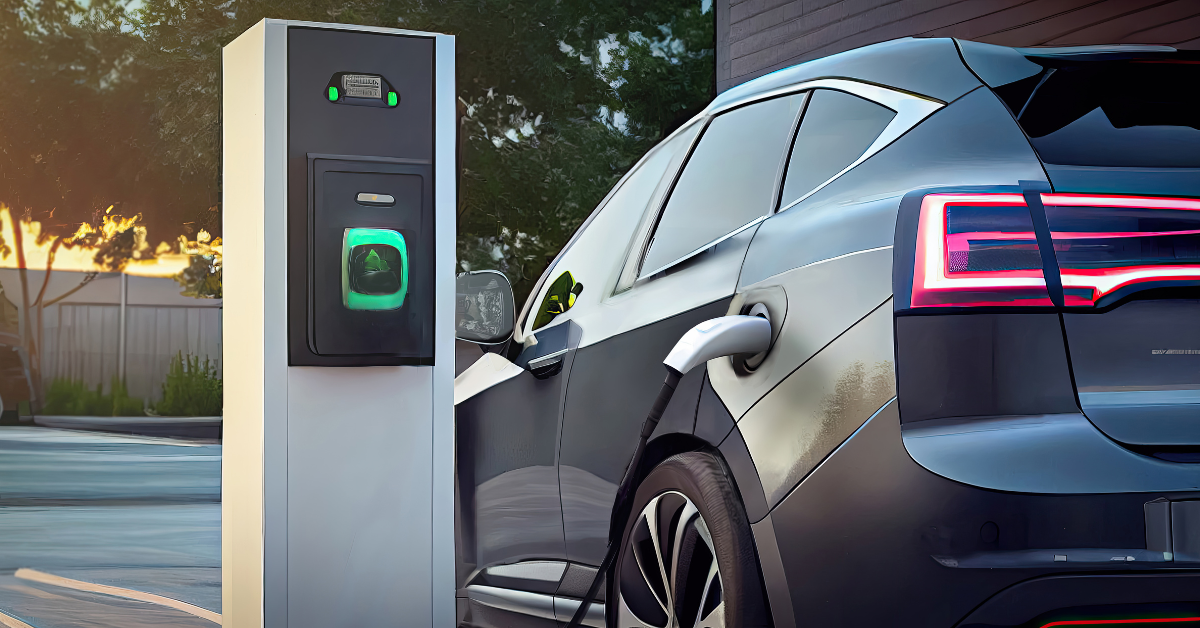Electric vehicles (EVs) are leading a transformative shift in the transportation industry, offering an eco-friendly alternative to traditional gas-powered vehicles. As concerns over climate change and air pollution rise, EVs represent a promising solution for reducing carbon emissions, lowering fuel dependence, and building a sustainable future. With innovations in battery technology, charging infrastructure, and accessibility, the electric vehicle market is expanding rapidly, bringing sustainable transportation within reach for more people.
This article explores the future of electric vehicles, current advancements, and how they’re reshaping sustainable transportation. From zero emissions to energy-efficient technologies, EVs are paving the way for greener mobility.
Why Electric Vehicles Are Important for Sustainability
Reducing Carbon Emissions
Traditional vehicles powered by gasoline and diesel are a significant source of greenhouse gas emissions, contributing to global warming and air pollution. EVs, on the other hand, produce zero tailpipe emissions, helping reduce overall carbon footprints. As more people switch to electric vehicles, fewer harmful gases are released into the atmosphere, leading to cleaner air and a healthier planet.
In cities with heavy air pollution, the adoption of EVs could make a noticeable difference in air quality, improving public health and reducing pollution-related diseases.
To learn actionable steps for minimizing your environmental impact, check out this guide on How to Reduce YourCarbon Footprint from WWF’s Panda.org. It offers practical tips for lowering emissions in daily life.

Lowering Dependence on Fossil Fuels
Electric vehicles reduce reliance on fossil fuels, which are non-renewable resources that contribute to environmental degradation. By transitioning to electric transportation, societies can decrease oil consumption and increase the use of renewable energy sources, such as solar and wind, which are used to generate electricity for EVs.
Reducing fossil fuel consumption is essential for achieving sustainability, as it helps conserve natural resources and reduce the ecological impact of fuel extraction.
Increasing Energy Efficiency
EVs are generally more energy-efficient than internal combustion engine (ICE) vehicles. Electric motors convert more energy from the battery into actual movement, making EVs more efficient and cost-effective over time. Additionally, regenerative braking—a feature in most EVs—recovers energy during braking, extending battery life and reducing energy waste.
With energy efficiency at the core of EV design, these vehicles offer a more sustainable option for everyday transportation.
Innovations Driving the Future of Electric Vehicles
Advancements in Battery Technology
Battery technology is at the heart of EV innovation, and recent advancements have significantly improved battery life, charging speed, and capacity. Modern lithium-ion batteries can now provide EVs with longer ranges on a single charge, addressing one of the most common concerns about EVs—limited range.
Emerging technologies, such as solid-state batteries and lithium-sulfur batteries, promise even greater efficiency and faster charging times, potentially reducing the cost and environmental impact of battery production.
For insights into the latest advancements in battery technology, explore What’s Next for Batteries from MIT Technology Review. This article covers cutting-edge developments that could transform energy storage and sustainability.

Expansion of Charging Infrastructure
The development of charging infrastructure is essential for the widespread adoption of EVs. Public charging stations are becoming more accessible, with governments and private companies investing in charging networks across cities, highways, and public areas. Fast-charging stations allow EVs to recharge quickly, making electric travel more convenient and reducing “range anxiety.”
In the future, wireless charging and solar-powered charging stations may further enhance the convenience and sustainability of EV charging.
Integration of Renewable Energy Sources
As renewable energy sources like solar and wind become more affordable, there’s an increasing emphasis on charging EVs with green energy. Some EV owners install solar panels at home to charge their vehicles, creating a closed-loop system that’s both cost-effective and sustainable.
Integrating renewable energy into EV infrastructure reduces the environmental impact of electric transportation, making it a truly green alternative to gas-powered vehicles.
The Role of Government and Industry in EV Adoption
Government Incentives and Policies
Many governments worldwide are incentivizing EV adoption through tax breaks, rebates, and subsidies. These incentives make EVs more affordable and accessible to a wider audience. Policies like carbon emissions regulations, fuel economy standards, and support for charging infrastructure further encourage EV growth.
With continued government support, EV adoption rates are likely to increase, helping countries meet climate goals and reduce dependence on fossil fuels.
Automakers’ Commitment to Electric Futures
Major automakers are investing heavily in electric vehicle research and development, with many companies pledging to phase out gasoline vehicles over the next decade. Brands like Tesla, Volkswagen, and General Motors are expanding their EV lineups, making electric vehicles more accessible in terms of variety and price range.
As competition increases, prices are expected to become more affordable, making EVs a practical choice for more consumers.
For a look at how the automotive industry is embracing sustainable energy, check out this Progress Update: AutomakersAccelerate Toward an Electric Future from Accelerating to Zero. This update highlights key advancements in electric vehicle technology and commitments by major automakers.

Private and Public Investments in Charging Networks
Partnerships between governments and private companies are accelerating the rollout of EV charging stations, addressing a major barrier to adoption. Networks like ChargePoint and EVgo are expanding across the U.S. and Europe, while Tesla’s Supercharger network continues to grow globally.
With a well-established charging infrastructure, EV owners can confidently travel longer distances, further integrating EVs into mainstream transportation.
The Future of Electric Vehicles and Sustainable Mobility
Autonomous and Shared Electric Vehicles
Autonomous EVs and electric ride-sharing services represent the next frontier in sustainable transportation. By combining self-driving technology with electric power, these vehicles have the potential to reduce traffic congestion, lower emissions, and make transportation more accessible.
Shared EVs, especially autonomous ones, could further reduce the number of personal vehicles on the road, making urban areas cleaner and less congested.
Smart Grid Integration for Enhanced Energy Efficiency
As EV adoption grows, smart grid technology is being developed to manage electricity demand effectively. By integrating EVs with smart grids, electricity usage can be optimized based on real-time demand, reducing strain on the power grid and improving energy efficiency.
This technology enables EVs to support a stable energy supply while minimizing environmental impact, especially when paired with renewable energy sources.
Environmental and Economic Impact
The environmental benefits of electric vehicles are profound, from reducing air pollution to lowering greenhouse gas emissions. Economically, EVs can also be a cost-effective option over time due to lower fuel and maintenance costs. As technology advances, EVs are expected to become even more affordable, making sustainable transportation accessible to a larger population.
In addition to supporting sustainability, the shift to EVs is creating new job opportunities in green industries, further driving economic growth.
The future of electric vehicles is promising, with ongoing advancements in technology, infrastructure, and policy support. EVs are not only a sustainable alternative to traditional vehicles but also an essential part of the global effort to combat climate change. As more people embrace electric mobility, the benefits of cleaner air, reduced emissions, and energy efficiency will become increasingly evident.
By supporting the growth of electric vehicles, we can create a greener, healthier, and more sustainable world for future generations. Whether you’re considering an EV for personal use or simply interested in the impact of sustainable transportation, electric vehicles represent a critical step toward a cleaner future.
For insights into sustainable tech innovations, read our article on Biodegradable Electronics. This piece explores how eco-friendly electronics are reducing waste and promoting a greener future.






















